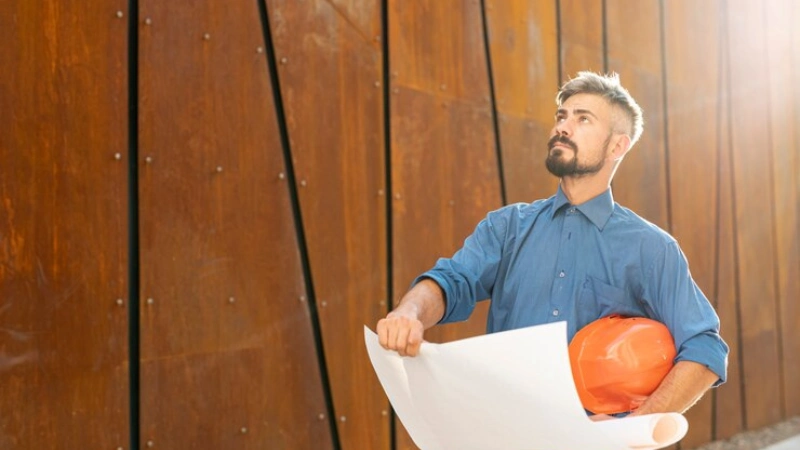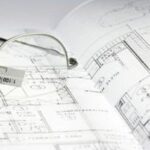
Choosing the right builder is one of the most important decisions you’ll make during any construction project, whether you’re building a new home, renovating your current space, or constructing a commercial property. The builder you select will not only be responsible for turning your vision into reality but also for managing budgets, timelines, and ensuring the safety and quality of your project. Given the significance of this decision, it’s crucial to approach it with careful consideration.
Table of Contents
In this comprehensive guide, we’ll walk you through the process of selecting the right builder for your needs. We’ll discuss key factors to consider, helpful tips, and common mistakes to avoid. By the end of this article, you’ll feel confident in your ability to choose a builder who will deliver outstanding results.
Understanding Your Project Needs
Before you even begin searching for a builder, it’s essential to understand exactly what your project entails. Whether you’re constructing a residential home, renovating a kitchen, or building a commercial space, your needs will greatly influence the type of builder you should hire.
Start by outlining:
- The Scope of the Project: What exactly do you want to build or renovate? Are there specific design elements you have in mind? Are you looking for a builder who can work with unique materials or follow a particular architectural style?
- Budget: What is your overall budget? Make sure to have a clear understanding of your financial limits and how flexible you are with them. A builder needs to know your budget upfront to recommend realistic solutions.
- Timeline: Do you have a specific deadline in mind? Whether it’s for moving into your new home or completing a commercial project, a builder’s availability and ability to meet deadlines will be a determining factor.
Researching Builders
Once you have a solid understanding of your project’s requirements, it’s time to start researching builders. Begin by asking for recommendations from friends, family, colleagues, or industry professionals. You can also search online or visit local trade shows and home improvement exhibitions to get a sense of the builders available in your area.
Take note of:
- Reputation: Builders with positive reputations often come highly recommended. Look for builders who are known for delivering quality work on time and within budget.
- Specialization: Not all builders specialize in the same type of construction. Some may focus on residential homes, while others may have expertise in commercial projects, renovations, or custom builds. Make sure you’re looking at builders who have experience in your specific type of project.
- Online Presence: Most reputable builders have a professional website and active social media profiles. This is an excellent opportunity to learn more about their work, services, and client engagement.
Checking Credentials and Licensing
Ensuring that the builder is properly licensed and credentialed is essential for protecting yourself and your investment. A legitimate builder should have the necessary licenses and certifications required by local or national building authorities.
When verifying credentials, look for:
- Licensing: Builders must hold a valid license issued by a regulatory authority. In many places, builders are required to pass exams and adhere to local building codes and regulations.
- Bonding and Insurance: Ask if the builder is bonded and insured. A bonded builder means that they have a surety bond, which can provide you with financial protection in case they fail to meet their obligations. Insurance is essential for protecting both you and the builder in case of accidents or damages during construction.
- Accreditations: Check if the builder is a member of any industry associations, such as the National Association of Home Builders (NAHB) or the Associated Builders and Contractors (ABC). These memberships often indicate that the builder adheres to certain professional standards.
Looking for Relevant Experience
Experience matters, especially when it comes to handling complex projects or working within a specific industry. A builder with years of experience will not only have the technical skills required to handle various aspects of the construction process but will also have developed a network of reliable subcontractors, suppliers, and industry professionals.
When considering experience, ask about:
- Type of Projects: Does the builder have experience working on projects similar to yours? If you’re building a custom home, for example, you’ll want someone who has experience with bespoke designs, rather than just cookie-cutter homes.
- Scale of Projects: Some builders specialize in small residential projects, while others may focus on large-scale commercial developments. It’s important to choose a builder who is familiar with the scale and scope of your particular project.
- Challenges: Ask the builder about the most challenging projects they’ve worked on and how they managed to overcome obstacles. This will give you insight into their problem-solving abilities and adaptability.
Reviewing Past Projects and Portfolio
A reputable builder should have a portfolio of past projects available for you to review. This allows you to assess the quality of their work, as well as the diversity of the projects they’ve completed.
When reviewing a builder’s portfolio, pay attention to:
- Quality of Work: Look for attention to detail, craftsmanship, and the overall finish of the projects. Does the builder take pride in their work, and does it reflect a high level of skill?
- Variety of Projects: Check if the builder has worked on different types of projects. A builder with a broad portfolio may be more versatile and capable of adapting to different needs.
- Photos and Testimonials: Look for clear, high-resolution images of completed projects. Ideally, these should be accompanied by testimonials from satisfied clients. Positive feedback and real examples of work can provide great confidence.
Evaluating Communication and Compatibility
Effective communication is essential throughout the building process. The builder you hire will need to understand your vision and be able to provide feedback, updates, and manage any issues that arise during construction.
Here are some questions to ask when evaluating communication:
- Initial Consultation: How responsive and attentive is the builder during your first interactions? Do they ask clarifying questions to ensure they fully understand your needs, or are they quick to jump into quotes?
- Regular Updates: Will the builder provide regular updates throughout the construction process? Make sure you’re comfortable with the way they communicate (e.g., weekly meetings, emails, phone calls).
- Problem-Solving: If a challenge arises during construction, how does the builder communicate potential solutions? Effective problem-solving and open communication will help ensure your project stays on track.
Checking References and Reviews
Before finalizing your decision, be sure to ask for references from previous clients. Speaking with past clients will give you valuable insights into the builder’s work ethic, reliability, and overall performance.
When speaking to references, ask questions such as:
- Was the project completed on time and within budget?
- Were there any unexpected issues, and how did the builder handle them?
- Were you satisfied with the overall quality of the work?
- Did the builder communicate effectively throughout the process?
You can also check online reviews on platforms like Google, Yelp, or Houzz. While reviews shouldn’t be the sole factor in your decision, they can provide additional context to help you make an informed choice.
Getting Multiple Quotes and Comparing Costs
It’s essential to get at least three quotes from different builders to ensure you’re getting a fair price for the quality of work you expect. While the lowest bid might be tempting, it’s often a red flag. A builder who undercuts competitors may use substandard materials or cut corners to stay within budget, leading to future problems.
When reviewing quotes:
- Breakdown of Costs: Ensure the quote includes a detailed breakdown of costs, including materials, labor, permits, and any other associated expenses.
- Payment Schedule: Understand the payment structure and when payments are due. Be wary of builders who ask for large upfront payments.
- Additional Costs: Ask about potential additional costs that may arise and how they will be managed.
Assessing Timeline and Availability
Before you hire a builder, it’s crucial to discuss timelines. A good builder should be able to provide a realistic estimate of how long the project will take. They should also have a clear understanding of the materials, labor, and subcontractors needed to meet your timeline.
Ask about:
- Availability: Is the builder available to start your project within your desired timeframe?
- Project Milestones: How long will different phases of the project take? Will they provide a timeline of key milestones?
Understanding Insurance and Warranty
A reliable builder should have both insurance and a warranty for their work. Insurance protects you from liability in case of accidents during construction, while a warranty ensures that any defects in materials or workmanship will be addressed after completion.
Confirm the builder’s insurance coverage and inquire about the warranty details.
The Importance of a Contract
Before any work begins, make sure you have a clear, written contract that outlines all aspects of the project, including scope, budget, timeline, and any warranties. A well-drafted contract can protect both parties and help avoid misunderstandings or disputes down the line.
Common Mistakes to Avoid
- Ignoring Red Flags: Be cautious if a builder is evasive about answering questions, has a poor reputation, or offers an unusually low bid.
- Not Checking References: Always check references before hiring. A reputable builder will have a history of satisfied clients.
- Skipping the Contract: Never start work without a clear, written agreement in place.
FAQ’s
What is the estimated total cost of building my home?
The total cost of constructing a home depends on factors like size, location, design, materials, and labor. A reputable builder should provide you with a detailed estimate that covers all expenses, including permits, utilities, site preparation, and interior finishes. Make sure to request a breakdown of costs, so you understand where your money is going. It’s also essential to leave some room in your budget for unexpected expenses or changes that may come up during the process.
What type of warranty do you offer on your construction work?
A reliable builder should provide a warranty for both materials and workmanship. Most homebuilders offer warranties that cover structural issues for several years and other components, like plumbing or electrical systems, for a shorter period. It’s important to understand what is covered under the warranty and for how long. Be sure to get the warranty terms in writing to avoid any confusion in the future.
How long will it take to complete my home?
The timeline for building a home can vary depending on the size, complexity, weather, and availability of materials. A builder should give you a realistic estimate based on your specific project. For a typical home, construction can take anywhere from several months to over a year. Make sure the builder includes a timeline with milestones for major project phases, such as foundation, framing, plumbing, and finishing.
What steps do you take to ensure the quality of construction?
A good builder should have a process in place for ensuring the quality of construction throughout the project. This includes regular inspections, adherence to building codes, and using quality materials. Ask the builder how they ensure the structural integrity of the home and what steps they take if problems arise during construction. A reputable builder will have experienced subcontractors, perform frequent quality checks, and make sure that everything meets or exceeds industry standards.
How do you handle changes or upgrades during construction?
Changes during construction are common, whether it’s a design modification, material upgrade, or a new idea that comes up. Discuss with your builder how they manage changes once the construction process is underway. Some builders charge extra for modifications, while others might include a limited amount of change orders in the original contract. Ensure that the process for requesting changes is clear, and ask how they will impact the timeline and cost. This will help you avoid surprises as the project progresses.
Conclusion
Choosing the right builder can seem like a daunting task, but by following these steps and taking your time, you can find a contractor who will meet your needs and help bring your vision to life. Do your research, ask the right questions, and trust your instincts. By making an informed decision, you’ll ensure that your construction project is a success.
Remember: this is your investment, so it’s worth taking the time to choose a builder who is professional, reliable, and committed to delivering high-quality work.






1 Comment
This blog provides a comprehensive guide to selecting the right builder for your construction project. It covers crucial aspects like project scope, budget, and timeline, ensuring homeowners and businesses make informed decisions. The article emphasizes researching builders by evaluating reputation, specialization, and credentials while also highlighting the importance of communication and compatibility. Practical advice on reviewing past projects, checking references, and comparing multiple quotes adds further value. The blog effectively outlines common pitfalls to avoid and stresses the need for contracts and warranties. Overall, it’s an insightful, well-structured resource for anyone planning a building or renovation project.